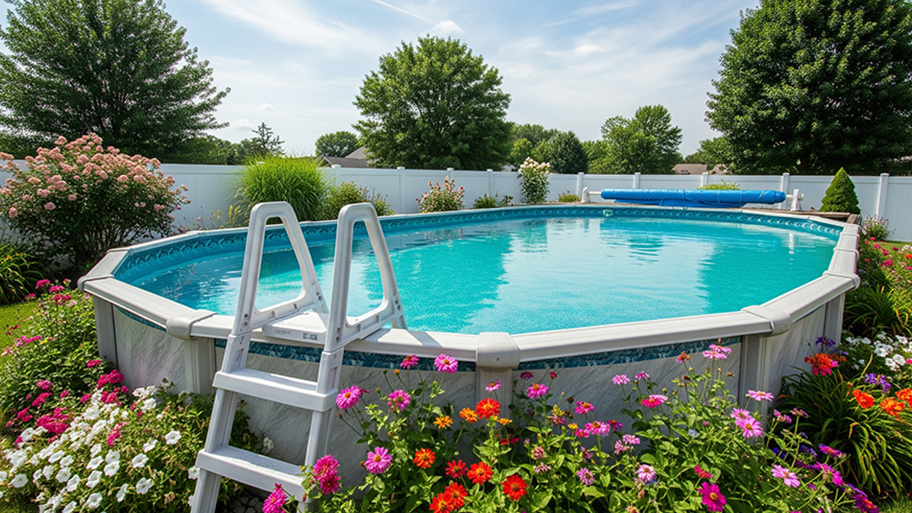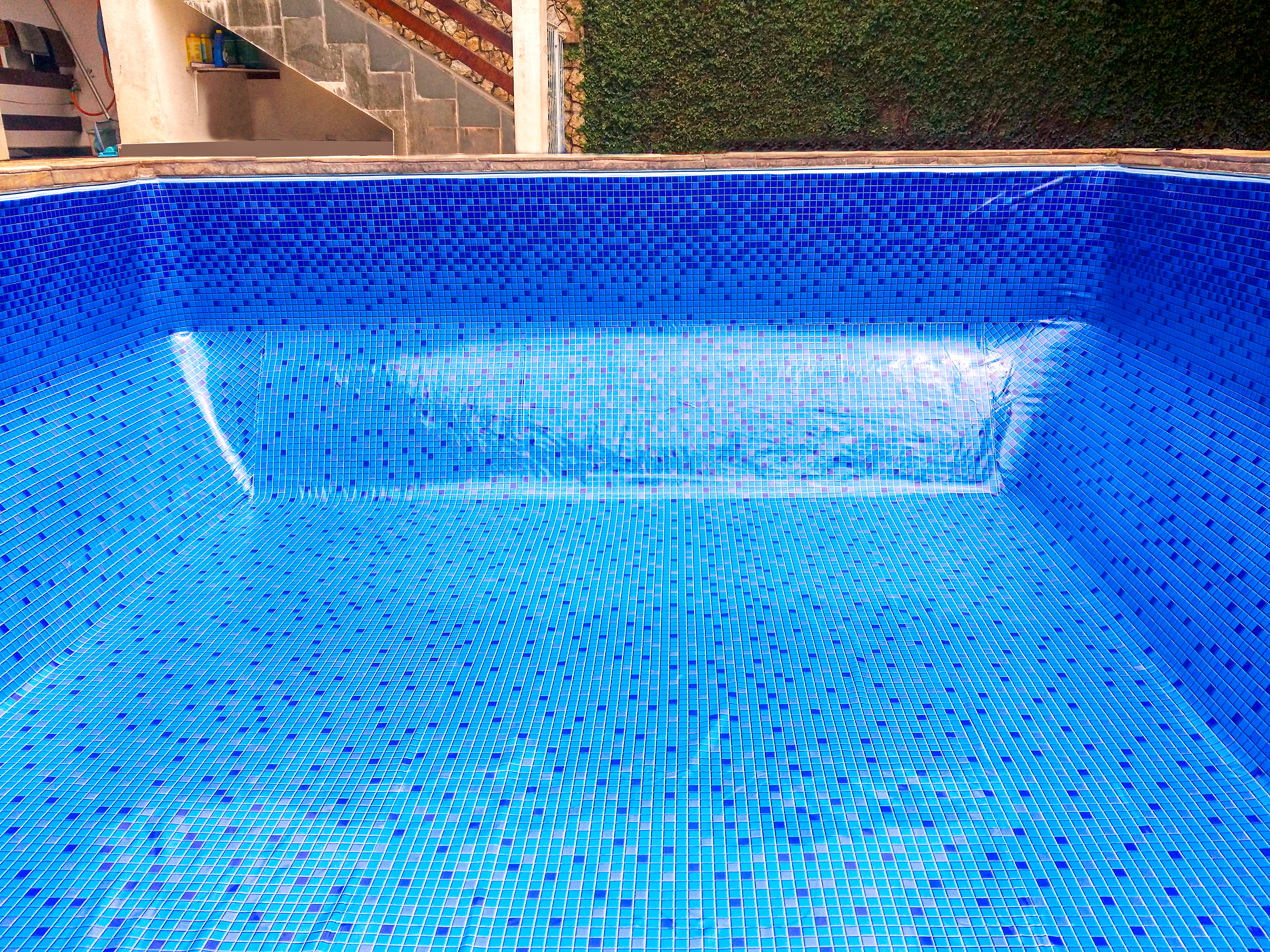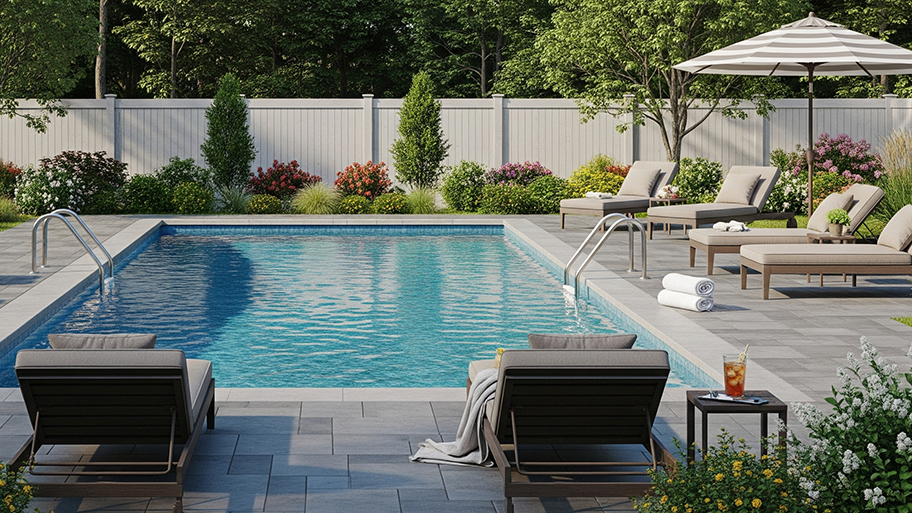
Dreaming of summertime swimming? Find out aboveground pool costs, including prices for materials, fun extras, and professional installation.
Become one with the plants


A natural swimming pool is a popular alternative to traditional swimming pools that relies on the surrounding plant life to maintain the water rather than chemicals. But building one may not be as straightforward as installing a standard swimming pool. So, we’ve compiled a list of nine tips to keep in mind if you’re considering adding a natural swimming pool to your home.
By keeping the design simple, building a natural swimming pool is a much more DIYable task. There are plenty of extra features that can be added to a natural swimming pool, like waterfalls, stone walls, and fountains. But, the more basic the design, the easier it will be to build without needing to consult additional contractors.
By keeping your natural swimming pool at a reasonable depth, both installation and maintenance will be easier. Typically, natural swimming pools have a depth of 4 to 8 feet, but it is advisable to keep the depth nearer to 4 feet. Walls that are higher than 6 feet require more extensive reinforcement.

It’s necessary that you install a liner in your natural swimming pool, just as you do in other types of pools, and there are a variety of options available. It’s a good idea to use a black liner as they produce a high passive heat gain, which will make heating the swimming pool cheaper (and potentially not necessary at all).
Picking the right spot is key when installing a natural swimming pool. You should choose a spot on even, consistent ground to make installation easier. But perhaps even more importantly, the area should be fairly shady. If a natural pool gets too much direct sunlight, algae will grow and cause problems for the natural filtration system.
Too often people don’t create a proper drainage plan for their natural swimming pools, and this leads to issues down the line. It’s important to work out how to move surface water away from the pool and surround it with good drainage channels.
Swimming pools of any kind can be a potential safety hazard. That’s why it is imperative that you consult municipal laws so you know that you’re taking the proper precautions. Some places require a fence around pools—even natural ones—as well as signage that informs people about potential hazards and safety precautions.
While natural swimming pools can be made in different shapes and sizes, opting for a flat bottom might be your best bet. With a flat bottom, the initial digging required for the pool installation is simplified. On top of that, natural swimming pools with a flat bottom are easier to clean and help provide stability to the pool walls. When looking into swimming pool installers near you, be sure to inform potential laborers of your preference for a flat bottom swimming pool.

Since natural pools rely on plants to function, having a variety of flora is important. But, you can’t just pull from what’s growing nearby, you need to account for buying plants when considering the cost of a natural pool. Consider adding floating plants like duckweed, submerged plants like water hyssop, and emergent plants like papyrus to create a diverse ecosystem for your natural swimming pool.
Even a natural swimming pool will need a little outside help to prevent mold and bacteria from growing. To keep your pool water clean and safe, you need to make sure you install a water pump to cycle the water through the regeneration zone and swimming area. If you are looking into how to hire a pool contractor, it may be worth seeing if they will install the pump for you.
From average costs to expert advice, get all the answers you need to get your job done.

Dreaming of summertime swimming? Find out aboveground pool costs, including prices for materials, fun extras, and professional installation.

The cost of pool liner replacement in Columbus depends on the size and shape of your pool, as well as the liner material and type. Here’s how the costs break down.

If you’ve been considering installing a new pool in the Buckeye State, this guide will help you understand inground pool costs in Columbus.

If your water has high calcium hardness, it's important to learn how to lower calcium hardness in your pool water to avoid corrosion that can harm your pool's plumbing.

Dreaming of getting in those daily laps without tearing up your backyard? Here’s what to know about endless pool costs so you can plan your project.

Everything was going swimmingly, but now your pool heater is not working properly. Here are some troubleshooting tips to get you back in business.